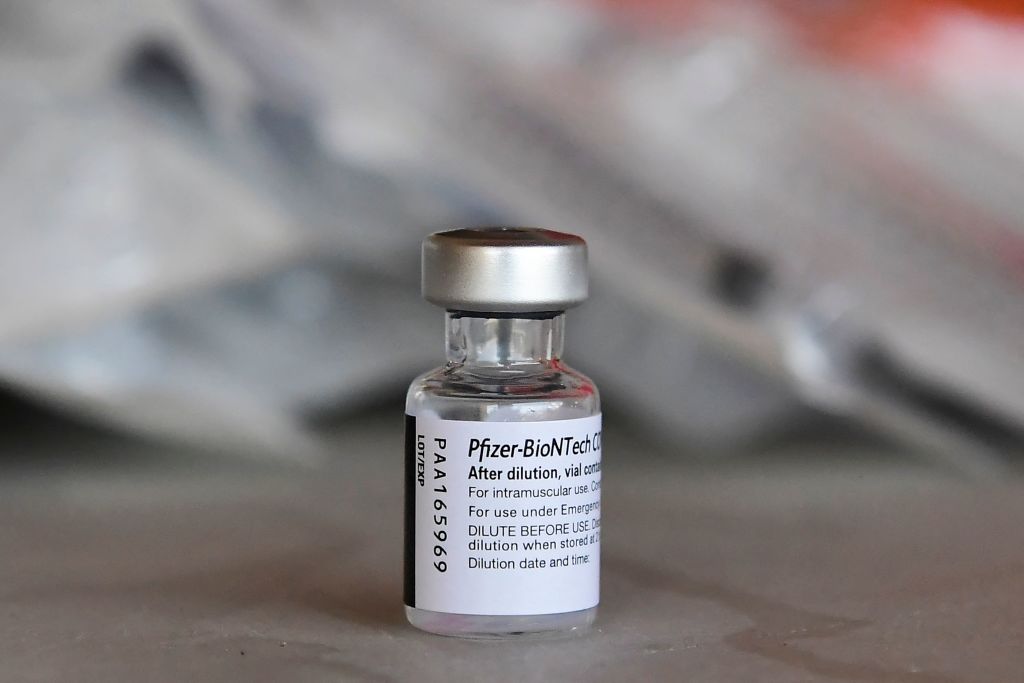Why it may be a 'grave mistake' for FDA to wait much longer for full COVID-19 vaccine approval


A free daily email with the biggest news stories of the day – and the best features from TheWeek.com
You are now subscribed
Your newsletter sign-up was successful
Zeynep Tufecki, a sociologist who has written extensively on COVID-19 throughout the pandemic, is a proponent of broadening vaccine mandates in the United States, citing precedent in the health-care sector, the military, and schools.
Kentucky, she notes in a piece published Saturday in The New York Times, requires anyone working in a long-term care facility to be vaccinated against the flu and pneumococcal disease unless they have a medical or religious exemption (Brown University's Dr. Ashish Jha, another prominent voice during the pandemic, also pointed to flu vaccine mandates in nursing homes as a reason to implement them for the coronavirus). But Tufecki acknowledged that the fact that the Food and Drug Administration has still not granted full authorization for the Pfizer-BioNTech, Moderna, and Johnson & Johnson vaccines is an obstacle to imposing such requirements.
Both Pfizer and Moderna, which were granted emergency use late last year, have submitted their applications for full approval, and the former is apparently set to receive the green light no later than January 2022. Tufecki, for one, hopes the stamp comes much more quickly than that, however. "It would be a grave mistake for the agency to take another six months," she writes for the Times, explaining that the extra waiting time "has allowed some anti-vaxxers to claim the vaccines are experimental."
The Week
Escape your echo chamber. Get the facts behind the news, plus analysis from multiple perspectives.

Sign up for The Week's Free Newsletters
From our morning news briefing to a weekly Good News Newsletter, get the best of The Week delivered directly to your inbox.
From our morning news briefing to a weekly Good News Newsletter, get the best of The Week delivered directly to your inbox.
Additionally, she argues the holdup "helps feed a misunderstanding" about adverse side effects. The consensus among medical experts is that allergic reactions would occur shortly after inoculation, while other immune reactions could theoretically take longer, but would likely still occur "within the first few weeks and months after vaccination." Waiting, therefore, may suggest to some that the risk of those issues occurring down the line is higher than it is. At this point, Tufecki believes regulators have the six months of data they need, and should move quickly toward approval with the goal of increasing the U.S. vaccination rate again. Read Tufecki's full piece at The New York Times.
A free daily email with the biggest news stories of the day – and the best features from TheWeek.com
Tim is a staff writer at The Week and has contributed to Bedford and Bowery and The New York Transatlantic. He is a graduate of Occidental College and NYU's journalism school. Tim enjoys writing about baseball, Europe, and extinct megafauna. He lives in New York City.
-
 How the FCC’s ‘equal time’ rule works
How the FCC’s ‘equal time’ rule worksIn the Spotlight The law is at the heart of the Colbert-CBS conflict
-
 What is the endgame in the DHS shutdown?
What is the endgame in the DHS shutdown?Today’s Big Question Democrats want to rein in ICE’s immigration crackdown
-
 ‘Poor time management isn’t just an inconvenience’
‘Poor time management isn’t just an inconvenience’Instant Opinion Opinion, comment and editorials of the day
-
 A Nipah virus outbreak in India has brought back Covid-era surveillance
A Nipah virus outbreak in India has brought back Covid-era surveillanceUnder the radar The disease can spread through animals and humans
-
 Trump HHS slashes advised child vaccinations
Trump HHS slashes advised child vaccinationsSpeed Read In a widely condemned move, the CDC will now recommend that children get vaccinated against 11 communicable diseases, not 17
-
 Covid-19 mRNA vaccines could help fight cancer
Covid-19 mRNA vaccines could help fight cancerUnder the radar They boost the immune system
-
 FDA OKs generic abortion pill, riling the right
FDA OKs generic abortion pill, riling the rightSpeed Read The drug in question is a generic version of mifepristone, used to carry out two-thirds of US abortions
-
 The new Stratus Covid strain – and why it’s on the rise
The new Stratus Covid strain – and why it’s on the riseThe Explainer ‘No evidence’ new variant is more dangerous or that vaccines won’t work against it, say UK health experts
-
 RFK Jr. vaccine panel advises restricting MMRV shot
RFK Jr. vaccine panel advises restricting MMRV shotSpeed Read The committee voted to restrict access to a childhood vaccine against chickenpox
-
 Texas declares end to measles outbreak
Texas declares end to measles outbreakSpeed Read The vaccine-preventable disease is still spreading in neighboring states, Mexico and Canada
-
 RFK Jr. shuts down mRNA vaccine funding at agency
RFK Jr. shuts down mRNA vaccine funding at agencySpeed Read The decision canceled or modified 22 projects, primarily for work on vaccines and therapeutics for respiratory viruses
